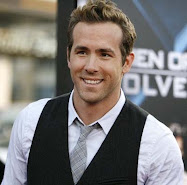By Mister Curie
Please let me know if anything in this post is confusing or too technical. I'm being trained as a geneticist and am not always sure how to write for a non-technical audience.
Having delved into the background of twin studies yesterday, today we will review the latest and most informative twin studies of homosexuality.
Archives of General Psychiatry, 1991, Volume 48, pages 1089-1096
Homosexuals were recruited through advertisements in gay magazines asking for the participation of homosexuals with twins or adopted brothers. 161 homosexuals responded, 115 with twin brothers and 46 with adoptive brothers. Homosexuals were also asked about the existence of non-twin, related brothers. Relatives were contacted to determine their sexual orientation. Relatives and homosexuals were asked if they considered themselves "homosexual/gay, bisexual, or heterosexual" and were given a Kinsey assessment of sexual fantasy and behavior.
For identical twins: 29/56 of the twins were also homosexual (52%)
For fraternal twins: 12/52 of the twins were also homosexual (22%)
For related, non-twin brothers: 13/142 of the brothers were also homosexual (9%)
For adopted brothers: 6/57 of the brothers were also homosexual (11%)
From our discussion yesterday, these data suggest a genetic contribution to homosexuality because the identical twins are more likely than fraternal twins to both be homosexual. We also see evidence for a shared uterine environment because the fraternal twins are more likely to both be homosexual than the related, non-twin siblings. We also see evidence for a shared environmental effect because the adopted brothers and non-twin brothers are similarly likely to be homosexual and this is above the population rate of homosexuality of ~5%. The study ended up estimating that the genetic contribution to homosexuality ranged between 31%-74%, with 17%-69% coming from unique environmental effects, and 0%-23% coming from shared environmental effects.
The biggest criticism of this study is that the participation rate may be influenced by whether or not the homosexual has a homosexual sibling and so that could affect the estimated rates of homosexuality in the different groups, however as long as there was no difference between whether someone decided to participate based on whether they had an identical twin vs a fraternal twin, the basic conclusions still stand. Another criticism is that only male twins were analyzed.
Journal of Personality and Social Psychology, 2000, Volume 78, pages 524-536
The study contacted twins who joined the volunteer Australian Twin Registry and asked for information on sexual orientation and Kinsey assessment. 9,112 twin pairs were contacted and 4,901 (54%) completed the questionnaires. In the end, there were 312 male identical twin pairs, 182 male fraternal twin pairs, 668 female identical twin pairs, 376 female fraternal twin pairs, and 353 opposite-sex fraternal twin pairs, where both twins in the pair had completed the questionnaire. Pairs were analyzed based on Kinsey scores.
39/299 male identical twin pairs had at least one homosexual twin, with 9/39 having both twins being homosexual (37.5%). 31/177 male fraternal twin pairs had at least one homosexual twin with 1/31 having both twins being homosexual (6.3%). 79/618 female identical twin pairs had at least one homosexual twin, with 14/75 having both twins being homosexual (30.1%). 45/338 female fraternal twin pairs had at least one homosexual twin, with 8/37 having both twins being homosexual (30.2%).
This data again supports a genetic basis for male homosexuality with identical twins being more likely to both be homosexual than fraternal twins, but not for female homosexuality where both identical and fraternal twins are equally likely to both be homosexual. The study estimated for male homosexuality it is 45% genetic, 0% shared environment, and 55% unique environment. For female homosexuality it is 8% genetic, 41% shared environment, and 50% unique environment. Confidence intervals contained 0 in all of the estimates, except for unique environment estimates.
This study overcame the prior criticism of selective recruitment by using a national database of twins, however the number of homosexuals is low in the population, so most of the twin groups were actually smaller than in the first study, which leads to less precision in the estimates of genetic and environmental effects.
Archives of Sexual Behavior, 2010, Volume 39, pages 75-80
The Swedish Twin registry records all twin births in Sweden and is the largest population register of twins in the world. 21,481 men and 21,607 women were contacted to participate in the study with 11,229 men and 14,096 women actually taking the survey. The survey had no question about self-defined sexual orientation, instead it asked about whether one had ever been sexually together with a person of the same gender and how many different partners the person had been with of the same gender over the course of their lifetime. In the end, there were 807 male identical twin pairs, 517 male fraternal twin pairs, 1,513 female identical twin pairs, and 989 female fraternal twin pairs, where both twins in the pair completed the survey. Pairs were analyzed based on whether they had ever had a same-sex partner over the course of their entire lives.
71/807 male identical twin pairs had at least one homosexual twin, with 7/71 having both twins being homosexual (10%). 53/517 male fraternal twin pairs had at least one homosexual twin with 3/53 having both twins being homosexual (6%). 214/1513 female identical twin pairs had at least one homosexual twin, with 26/214 having both twins being homosexual (12%). 140/989 female fraternal twin pairs had at least one homosexual twin, with 13/140 having both twins being homosexual (9%).
This data again supports a genetic basis for male homosexuality with identical twins being more likely to both be homosexual than fraternal twins, and some support for female homosexuality being genetic with identical twins have a slightly higher rate of shared homosexuality than fraternal twins. The study estimated for male homosexuality it is 39% genetic, 0% shared environment, and 61% unique environment. For female homosexuality it is 19% genetic, 17% shared environment, and 64% unique environment. Confidence intervals contained 0 in all of the estimates, except for unique environment estimates.
This study also avoided the criticism of selective recruitment by using a national database of twins, however even using the largest population registry of twins in the entire world, most of the twin groups were not much larger than in the first study due to the small numbers of homosexuals in the population, so estimates of genetic and environmental effects on homosexuality are still less precise than we might hope. This study also used sexual behavior rather than sexual orientation. As previously
discussed on my blog, this is an imprecise measure due to straight men that have sex with other men and gay men who have not had sex with men (like me). This may also have contributed to the lower estimates of homosexuality in this study.
Conclusions

The definitive twin study has not been performed and the data can be interpreted to support those who think there is and those who think there is not a genetic basis for homosexuality. Although limited by size, all three studies support a genetic influence to male heterosexuality (39%-74%) with a smaller genetic contribution for female homosexuality (8%-19%). Shared environmental effects appear to be nearly non-existent in contributing to male homosexuality, but are more pronounced for female homosexuality (17%-41%). However, the confidence interval includes 0 in the estimates of the genetic contribution to homosexuality. Both male and female homosexuality appear to be strongly influenced by unique environmental effects, and it is only the unique environmental effects that can be definitively identified as contributing to homosexuality in the large, population based studies. Due to the small number of homosexuals in the general population, even larger studies are needed to more precisely define the genetic and environmental contributions to homosexuality. It would also be nice to have a twin study with twins separated at birth to better tease apart the genetic and environmental contributions to homosexuality.

















































